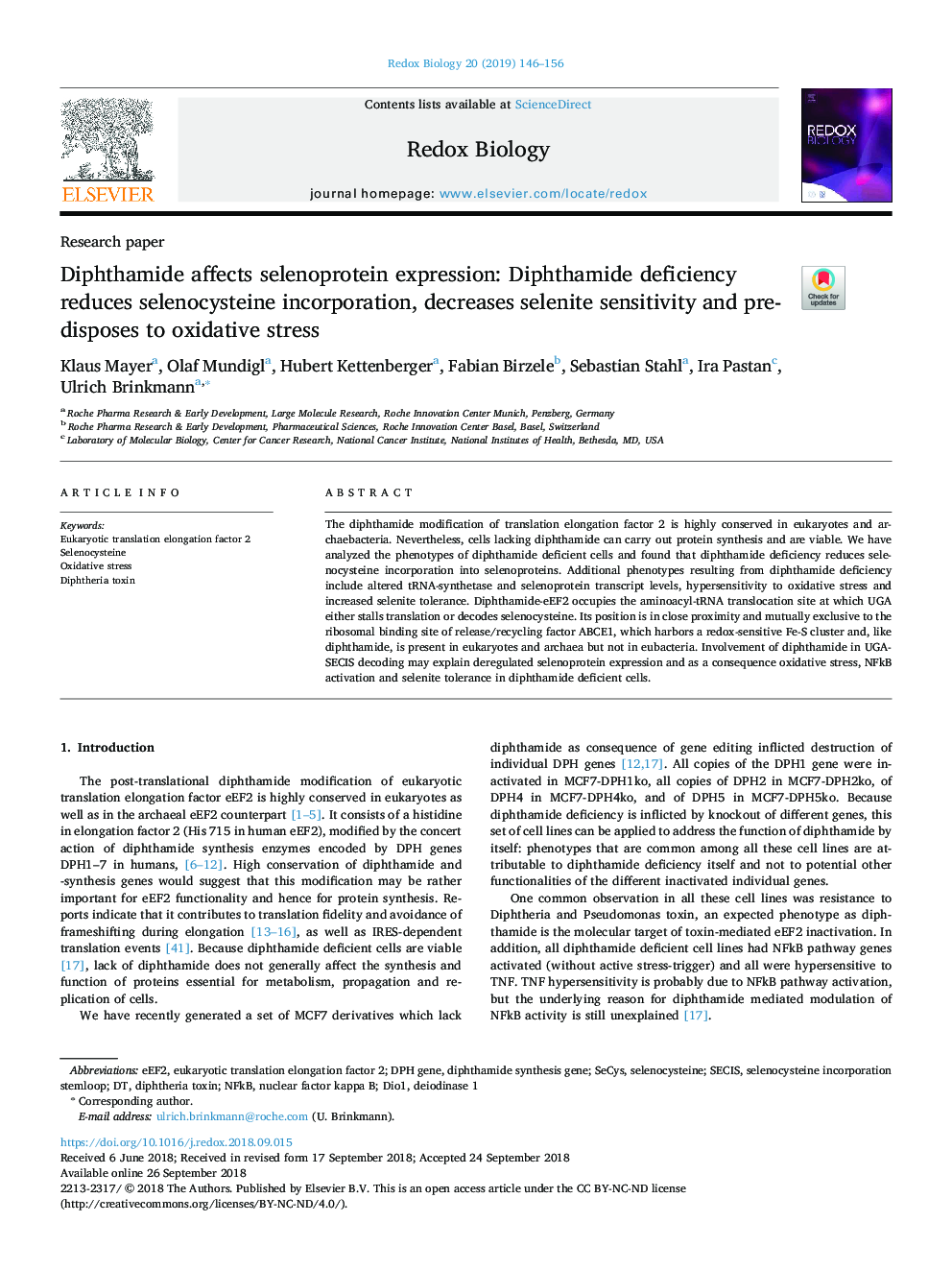| کد مقاله | کد نشریه | سال انتشار | مقاله انگلیسی | نسخه تمام متن |
|---|---|---|---|---|
| 11026194 | 1666415 | 2019 | 11 صفحه PDF | دانلود رایگان |
عنوان انگلیسی مقاله ISI
Diphthamide affects selenoprotein expression: Diphthamide deficiency reduces selenocysteine incorporation, decreases selenite sensitivity and pre-disposes to oxidative stress
ترجمه فارسی عنوان
دیفیتامین بر بیان بیان سلنوپروتئین تأثیر می گذارد: کمبود دی فتیامید، ترکیب سلنوسیستین را کاهش می دهد، حساسیت سلنیت را کاهش می دهد و پیش از قرار گرفتن در معرض استرس اکسیداتیو
دانلود مقاله + سفارش ترجمه
دانلود مقاله ISI انگلیسی
رایگان برای ایرانیان
کلمات کلیدی
موضوعات مرتبط
علوم زیستی و بیوفناوری
بیوشیمی، ژنتیک و زیست شناسی مولکولی
سالمندی
چکیده انگلیسی
The diphthamide modification of translation elongation factor 2 is highly conserved in eukaryotes and archaebacteria. Nevertheless, cells lacking diphthamide can carry out protein synthesis and are viable. We have analyzed the phenotypes of diphthamide deficient cells and found that diphthamide deficiency reduces selenocysteine incorporation into selenoproteins. Additional phenotypes resulting from diphthamide deficiency include altered tRNA-synthetase and selenoprotein transcript levels, hypersensitivity to oxidative stress and increased selenite tolerance. Diphthamide-eEF2 occupies the aminoacyl-tRNA translocation site at which UGA either stalls translation or decodes selenocysteine. Its position is in close proximity and mutually exclusive to the ribosomal binding site of release/recycling factor ABCE1, which harbors a redox-sensitive Fe-S cluster and, like diphthamide, is present in eukaryotes and archaea but not in eubacteria. Involvement of diphthamide in UGA-SECIS decoding may explain deregulated selenoprotein expression and as a consequence oxidative stress, NFkB activation and selenite tolerance in diphthamide deficient cells.
ناشر
Database: Elsevier - ScienceDirect (ساینس دایرکت)
Journal: Redox Biology - Volume 20, January 2019, Pages 146-156
Journal: Redox Biology - Volume 20, January 2019, Pages 146-156
نویسندگان
Klaus Mayer, Olaf Mundigl, Hubert Kettenberger, Fabian Birzele, Sebastian Stahl, Ira Pastan, Ulrich Brinkmann,
